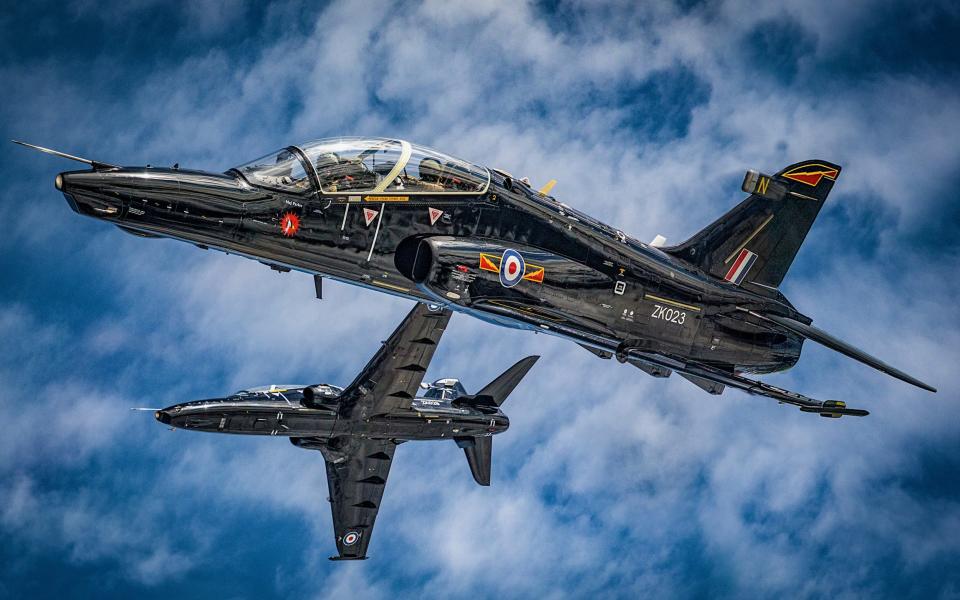Faulty French parts blamed for RAF jet engine failures

A British government minister has blamed the French for problems with RAF jet engines that could delay military pilot training for up to three years.
Engines in the Air Force’s Hawk T. Mk.2 training aircraft have been pulled from service amid fears of in-flight failures. Defence procurement minister Alec Shelbrooke, appointed by Liz Truss last week, revealed that a shortage of engines caused by problems with French-made components will last for up to three years.
In a parliamentary statement last week Mr Shelbrooke said: “A fault has been identified with the Rolls-Royce/Safran Adour 951 engine, which powers the Hawk T. Mk.2.
“As a precaution, a number of engines have been temporarily removed from service whilst the Ministry of Defence supports a Rolls-Royce/Safran investigation into the root cause and rectification.”
Problems with the Hawks’ Adour engines, built by a joint venture between Britain and France, were traced by engineers to a component made by the French aero-engine manufacturer.
Safran makes the low pressure compressor fan for the Adour 951, a component specifically referred to in Mr Shelbrooke’s parliamentary statement.
Rolls-Royce and Safran said in a joint statement: “We cannot comment on operational availability, however, we continue to work closely with our military customer to ensure we maximise the Royal Air Force’s training capability.”
Neither company would say how many engines were affected, or explain why the French-made component had failed.
“Initial assessments suggest the reduction in aircraft availability will have an impact on UK fast jet training output over the next three years.”
Rolls-Royce was hit hard by the Covid-19 shutdown in global air travel, seeing its share price plunge 67pc since January 2020.
The Hawk Mk.2 is used by the RAF for advanced fighter pilot training at RAF Valley, Anglesey. The Mark 2 is a newer version of the original Hawk T. Mk.1 jet, which is still flown by the Red Arrows. The compressor fan problem does not affect the Red Arrows’ aircraft, which use a different version of the Adour engine.
BAE Systems, which builds the Hawk, said: “Through a collaborative approach with the Royal Air Force and our industry partners, we continue to deliver long-term support and maintenance to the RAF Hawk fleet, to ensure their readiness and availability.”
About 3,000 Adour engines have been delivered over the past 30 years, with the type powering various Hawk models including T-45 Goshawks sold to the US Navy, the Anglo-French Jaguar fighter jet and various military and civil helicopters.
RAF pilot training has been beset by delays for many years. A 2019 National Audit Office report found that fighter jet pilots were languishing in training for a total of seven years thanks to delays under a privatised pilot training contract.
This month Rolls-Royce said it was pulling out of a contract with US company Boom, which is making a “son of Concorde” supersonic airliner, saying “the commercial aviation supersonic market is not currently a priority for us”.
The London-listed engine maker was trading at 76.4p on Friday afternoon, a significant discount on its five-year high of £3.75 from October 2018.

 Yahoo Finance
Yahoo Finance 